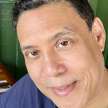Exploring the Choices Ducks and Humans Must Make to Survive
Career Decisions

The global pandemic hit the economy in a way that wasn’t dissimilar to the existential risk that ducks face each year in areas with variable climates. Some fly south in search of warmer weather. Others opt to stay and develop a survival strategy. For those that choose to stay, finding a place to reside with enough food until their favorite pond thaws is a priority.
Not surprisingly, the pandemic froze economic opportunities for many workers and left some desperately searching for ways to support themselves and their families. After the lockdown, some individuals had to reinvent themselves to find jobs to replace ones lost due to business closures. Others sought ways to apply for government benefits to survive the pandemic.
The good news is that such impediments are usually temporary. By the second quarter of 2021, U.S. real GDP had regained all its pandemic losses. Unfortunately, some workers were less fortunate as more than 5 million people employed before the pandemic remained without jobs. As many firms began to use technology enabling contactless service due to health concerns, the demand for labor diminished. While this will boost business productivity and profits, it explains how U.S. real GDP returned to pre-pandemic levels employing millions of fewer workers!
From a human perspective, one can see how this process evolved with two young ladies named Rita and Janice. As close friends, they attended the same schools and now worked as cashiers at a neighborhood supermarket. During the lockdown period, Rita was thrilled to collect generous unemployment benefits and used the time to reconnect with her children and family. Rita’s strategy made sense since she had worked very hard for years while struggling to make ends meet. Now, she could stay home and earn more money than if she was working. But as soon as those benefits ended, Rita returned to work. Unfortunately, 80% of customers at her supermarket were now using self-checkout stations to pay for groceries. Although she still had a job, the use of this new technology implied that her career as a cashier was no longer secure.
In contrast, Janice also collected generous unemployment benefits but worked hard to upgrade her job skills during the pandemic by taking various online computer courses. When she returned to work, she used her newly acquired computer skills. The supermarket put Janice in control of monitoring all 12 of the self-checkout stations. With her computer training during the pandemic, she was able to master troubleshooting the stations whenever a problem developed. The supermarket even encouraged her to continue taking additional computer courses in her spare time.
Like ducks, both ladies reacted to the pandemic differently. From a societal perspective, it is difficult to advocate one strategy over the other since pursuing a closer bond with family and enhancing one’s career options are both honorable actions.
But what we can say is that from an economic perspective, Janice was the clear winner while sadly Rita was not as lucky. Not surprisingly, the relationship between Rita and Janice deteriorated as both dealt with the aftereffects of the pandemic.
The one thing that this pandemic has taught us all is that many low-skilled positions will soon disappear by using artificial intelligence and complex algorithms. Rita remained bitter and questioned why her career opportunities dimmed because she spent more time with her family during the pandemic. In contrast, Janice was thrilled that the pandemic boosted her job options and increased her job security.
Taking a closer look at the lives of Rita and Janice reveals that life is often more complicated for humans than it is for ducks. Ducks must decide whether to fly south for the winter or stay behind and find a location that offers temporary shelter along with some food until their favorite pond thaws out!
For humans, the choices are never so simple!
About the Creator
Anthony Chan
Chan Economics LLC, Public Speaker
Chief Global Economist & Public Speaker JPM Chase ('94-'19).
Senior Economist Barclays ('91-'94)
Economist, NY Federal Reserve ('89-'91)
Econ. Prof. (Univ. of Dayton, '86-'89)
Ph.D. Economics






Comments
There are no comments for this story
Be the first to respond and start the conversation.